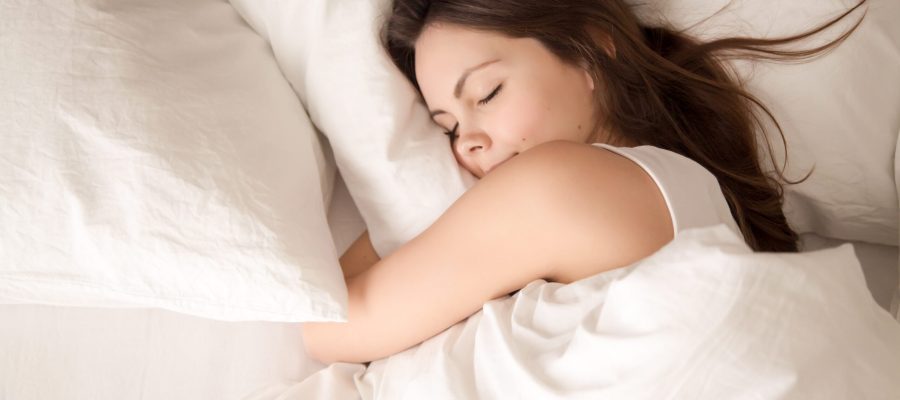A good night’s sleep might be one of the most important things we can do for our health. Most of us have suffered from insomnia or other sleep-related issues at some point in our life. In fact, 25 percent of the Swedish population suffers from sleep disorders, a recent survey shows. A one-off restless night is not too much of a problem, even though we can feel irritable or a bit off the next day. But the effect of long-term sleep deprivation can be a lot more serious, increasing the risk of several ailments and diseases.
Long-term sleep deprivation heightens the risk of type 2 diabetes, cardiovascular disease, diabetes, metabolic disorders, obesity, and Alzheimer’s disease. Too few hours of sleep are also associated with impaired memory, lower cognitive function, and mood disorders. Animal studies also show that lack of sleep leads to muscle-degrading conditions, reduced production of growth hormone, testosterone, increased insulin resistance, and impaired pancreatic function.
In other words, it is not good for our health not to sleep well. Read my 10 tips on how you can improve your sleep.
- Get into a routine. Maintain regular sleep habits. Try to get up and go to bed at about the same time every day, whether it is a weekday or a holiday, to not get an uneven circadian rhythm.
- Put tomorrow’s tasks at rest. Write a to-do list before going to bed. Avoid lying in bed and think about what you need to do tomorrow. Write down a list of things to do and let those thoughts go for the night.
- Take time to relax. Unwind before going to bed and create an evening routine. Turn off the lights, turn off the computer, TV, cell phone or other electronic screens one or a few hours before going to bed. Turn off or dim the lighting and light a candle. Listen to relaxing music and drink a cup of soothing evening tea. Read a book or talk to your partner.
- Avoid technology. Avoid blue light before going to bed. Computers, televisions, mobile phones, and other electronic equipment with screens emit blue light. Avoid blue light for about an hour and a half before going to bed. Use Blue Blockers, ie glasses that filter out blue light if you have to use equipment that emits blue light in the evening. The common habit of watching TV or working in front of a computer in the evening disturbs our sleep and a recently published study shows that blue light from computer, TV and telephone screens disturbs our circadian rhythm and disrupts melatonin production even if you sleep or close your eyes.
- Create a restful bedroom. Ensure the room is at the ideal temperature for sleep is 18–22 ° C. Ensure your bed provides the appropriate support, comfort and space so you wake up and move less. A lack of clutter and pale colors and pleasant scents can also help create a soothing setting.
- Make it dark, darkness encourages sleep. The bedroom should be quiet and completely dark at bedtime. You could try heavier curtains, extra lining or investing in blackout blinds if you have streetlights outside your window or bright sunlight shines in. If possible, the bedroom should also be free of clock radios and other electronic equipment that illuminates the room.
- Foods and drink to avoid. Spicy food, alcohol and large meals shouldn’t be consumed in the hours before bedtime. Avoid stimulants late in the day, such as caffeinated foods and beverages such as coffee, green tea, black tea, and chocolate. If you have trouble sleeping, you should also avoid all caffeinated foods and drinks after lunch, as there is a risk that they will negatively affect your ability to fall asleep. 8.
- Food that promote sleep. Eat foods that contribute to good sleep. Some people sleep better if they increase their carbohydrate intake for dinner. Carbohydrate sources should be, for example, white rice, sweet potatoes or root vegetables, but refined sugar should be avoided. It can also be beneficial to eat some protein that contains the amino acid tryptophan for dinner. Poultry, shellfish, red meat, elk meat and fish are protein sources rich in tryptophan. Spinach, watercress and parsley also contain tryptophan.
- Don’t watch the clock. Worrying about getting enough sleep can actually stop us from falling asleep. Instead, tell yourself that resting in bed and thinking nice thoughts is more productive than tossing and turning and looking at the clock every ten minutes. If this is hard for you turn it around so you can’t see it or put it on the other side of the room.
- Get active. Physical activity contributes to better sleep. Even better if you can do it outdoors in the sunlight, which contributes to a better circadian rhythm. Light is the most crucial factor that synchronizes the body’s biological rhythm to the earth’s natural 24-hour light and dark phases, and the morning light restores the circadian rhythm.

